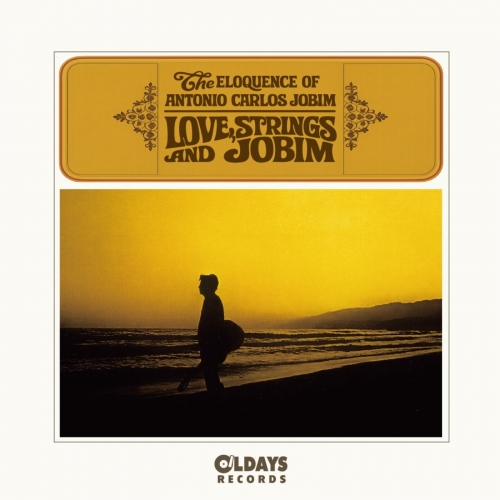Little Richard - Good Golly, Miss Molly (1990)
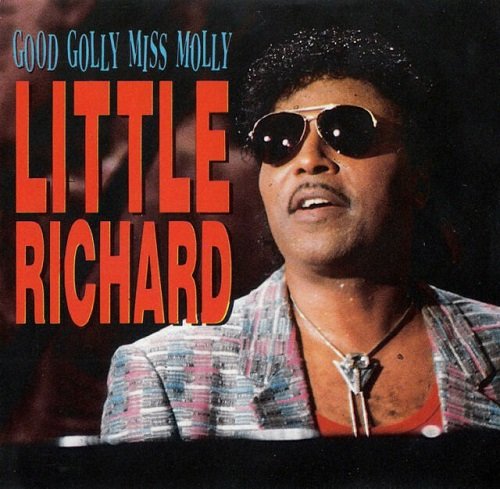
Artist: Little Richard
Title: Good Golly, Miss Molly
Year Of Release: 1990
Label: San Juan Music Group
Genre: Rock & Roll
Quality: Flac (tracks, .cue, log)
Total Time: 28:25
Total Size: 180 Mb
WebSite: Album Preview
Tracklist:Title: Good Golly, Miss Molly
Year Of Release: 1990
Label: San Juan Music Group
Genre: Rock & Roll
Quality: Flac (tracks, .cue, log)
Total Time: 28:25
Total Size: 180 Mb
WebSite: Album Preview
01. Good Golly Miss Molly (2:09)
02. The Girl Can't Help It (2:34)
03. Goodnight Irene (2:05)
04. Long Tall Sally (2:07)
05. Slippin' And Slidin' (2:35)
06. Hound Dog (2:22)
07. She's Got It (2:24)
08. Lucille (2:28)
09. Money Honey (2:17)
10. Whole Lotta Shakin' Goin' On (2:53)
11. Tutti Frutti (2:24)
12. Groovy Little Suzy (2:12)
Richard Wayne Penniman (born December 5, 1932), known as Little Richard, is an American recording artist, singer and musician.
Penniman is known for his dynamic blend of jump blues, gospel, New Orleans rhythm and blues and boogie-woogie as well as charismatic showmanship that led to him being one of the founding fathers of the rock and roll genre of the mid-1950s. Born and raised in a religiously devout family in Macon, Georgia, Penniman left home as a teenager where he performed at minstrel shows before moving to Atlanta at the dawn of the 1950s. Inspired by flamboyant jump blues singer and pianist Billy Wright, Penniman adapted Wright's pompadour hairdo, use of makeup and his flashy outfits and through Wright, landed a deal with RCA Records in 1951, though the four recordings released never charted outside Georgia. In 1953, Penniman briefly moved to Houston, Texas and signed with Peacock Records with his group, the Tempo Toppers. However, none of Penniman's recordings with Peacock were successful and Penniman threatened to quit the record business until Lloyd Price advised him to send his music to Art Rupe, eventually signing with Rupe's Specialty Records. Penniman scored his first hit single in late 1955 with the uptempo number, "Tutti Frutti", leading to an eighteen-month run of hit singles and the release of two albums, becoming one of the early stars of rock and roll.
Penniman's career was halted after he suddenly converted back to religion in October 1957 while he was on a package tour in Sydney, Australia. Leaving Specialty Records in 1959, Penniman signed with Mercury Records a couple of years later, releasing the gospel album, King of the Gospel Singers, produced by Quincy Jones, in 1962. Penniman returned to secular music following a tour in the United Kingdom with Sam Cooke as his opening act, and two years later, returned to recording secular music. Penniman struggled with recordings throughout the rest of his career, however, and it was not until his performances at rock and roll revivals and rock festivals that he would return to the mainstream, all while adopting a more flamboyant and androgynous look onstage. Drug abuse and personal deaths led to Penniman to retire again from secular music and return to evangelism in 1977. Penniman returned to the public eye in 1984 after releasing his autobiography, The Quasar of Rock, with Charles White, resulting in the release of the album, Lifetime Friend, including the single, "Great Gosh A' Mighty", releasing what he called "message music" and marked the first time he mixed the sounds of rock and roll with inspirational lyrics. Penniman returned to performing his rock and roll classics in the late 1980s and continued until a failed hip surgery forced him to retire from show business for good in 2013.
Inducted into the charter class of the Rock and Roll Hall of Fame in 1986, Penniman has been a huge influence on many artists of several music genres, including soul, rhythm and blues and rock. In addition to the Rock and Roll Hall of Fame, Penniman was inducted into the Songwriters Hall of Fame in 2003. In 1993, six years after infamously ranting about not receiving a Grammy, he was awarded the Lifetime Achievement Award. His signature song, "Tutti Frutti" was included in the National Recording Registry of the Library of Congress in 2010, which stated that his "unique vocalizing over the irresistible beat announced a new era in music." In 2015, the National Museum of African American Music honored Little Richard with a Rhapsody & Rhythm Award for his role in the formation of popular music genres and in helping shatter racial divisions in the music industry.
Penniman is known for his dynamic blend of jump blues, gospel, New Orleans rhythm and blues and boogie-woogie as well as charismatic showmanship that led to him being one of the founding fathers of the rock and roll genre of the mid-1950s. Born and raised in a religiously devout family in Macon, Georgia, Penniman left home as a teenager where he performed at minstrel shows before moving to Atlanta at the dawn of the 1950s. Inspired by flamboyant jump blues singer and pianist Billy Wright, Penniman adapted Wright's pompadour hairdo, use of makeup and his flashy outfits and through Wright, landed a deal with RCA Records in 1951, though the four recordings released never charted outside Georgia. In 1953, Penniman briefly moved to Houston, Texas and signed with Peacock Records with his group, the Tempo Toppers. However, none of Penniman's recordings with Peacock were successful and Penniman threatened to quit the record business until Lloyd Price advised him to send his music to Art Rupe, eventually signing with Rupe's Specialty Records. Penniman scored his first hit single in late 1955 with the uptempo number, "Tutti Frutti", leading to an eighteen-month run of hit singles and the release of two albums, becoming one of the early stars of rock and roll.
Penniman's career was halted after he suddenly converted back to religion in October 1957 while he was on a package tour in Sydney, Australia. Leaving Specialty Records in 1959, Penniman signed with Mercury Records a couple of years later, releasing the gospel album, King of the Gospel Singers, produced by Quincy Jones, in 1962. Penniman returned to secular music following a tour in the United Kingdom with Sam Cooke as his opening act, and two years later, returned to recording secular music. Penniman struggled with recordings throughout the rest of his career, however, and it was not until his performances at rock and roll revivals and rock festivals that he would return to the mainstream, all while adopting a more flamboyant and androgynous look onstage. Drug abuse and personal deaths led to Penniman to retire again from secular music and return to evangelism in 1977. Penniman returned to the public eye in 1984 after releasing his autobiography, The Quasar of Rock, with Charles White, resulting in the release of the album, Lifetime Friend, including the single, "Great Gosh A' Mighty", releasing what he called "message music" and marked the first time he mixed the sounds of rock and roll with inspirational lyrics. Penniman returned to performing his rock and roll classics in the late 1980s and continued until a failed hip surgery forced him to retire from show business for good in 2013.
Inducted into the charter class of the Rock and Roll Hall of Fame in 1986, Penniman has been a huge influence on many artists of several music genres, including soul, rhythm and blues and rock. In addition to the Rock and Roll Hall of Fame, Penniman was inducted into the Songwriters Hall of Fame in 2003. In 1993, six years after infamously ranting about not receiving a Grammy, he was awarded the Lifetime Achievement Award. His signature song, "Tutti Frutti" was included in the National Recording Registry of the Library of Congress in 2010, which stated that his "unique vocalizing over the irresistible beat announced a new era in music." In 2015, the National Museum of African American Music honored Little Richard with a Rhapsody & Rhythm Award for his role in the formation of popular music genres and in helping shatter racial divisions in the music industry.
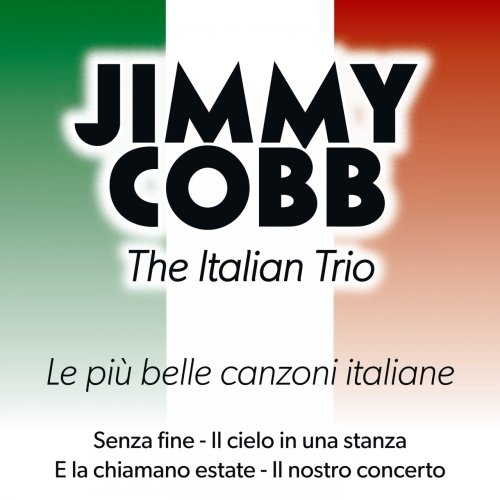
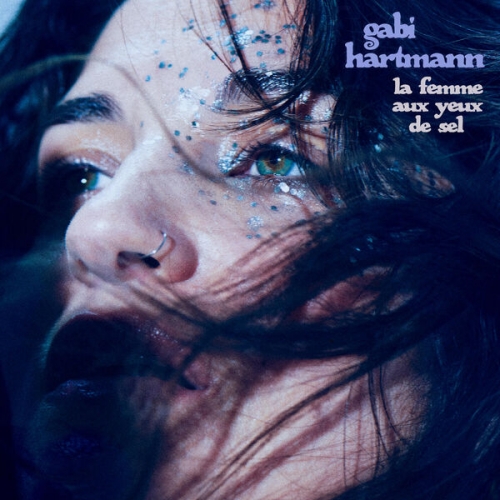
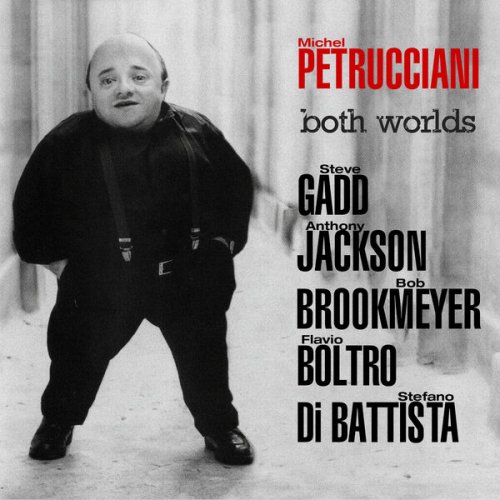
![Yannick Peeters, Frans van Isacker, Frederik Leroux & Tom Rainey - Smalltalk Code (2026) [Hi-Res] Yannick Peeters, Frans van Isacker, Frederik Leroux & Tom Rainey - Smalltalk Code (2026) [Hi-Res]](https://www.dibpic.com/uploads/posts/2026-02/1772112309_byqbmx6vl2tua_600.jpg)

![Alexander Wienand - Strangers (2026) [Hi-Res] Alexander Wienand - Strangers (2026) [Hi-Res]](https://www.dibpic.com/uploads/posts/2026-02/1772172636_cover.jpg)
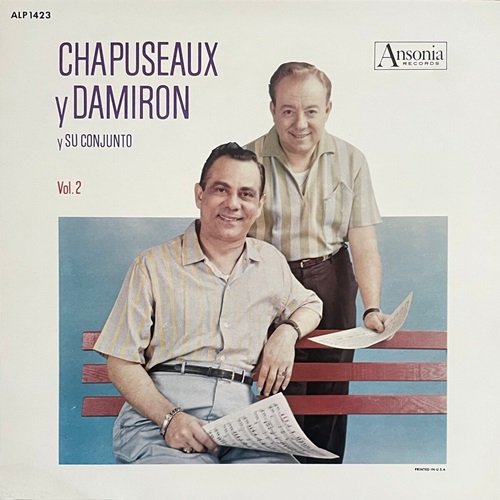
![Toshi Tsuchitori, Ryuichi Sakamoto - Disappointment–Hateruma (2026) [Hi-Res] Toshi Tsuchitori, Ryuichi Sakamoto - Disappointment–Hateruma (2026) [Hi-Res]](https://img.israbox.com/img/2026-02/27/0xnicsyi5sdb8v2xp0fiz1kew.jpg)
